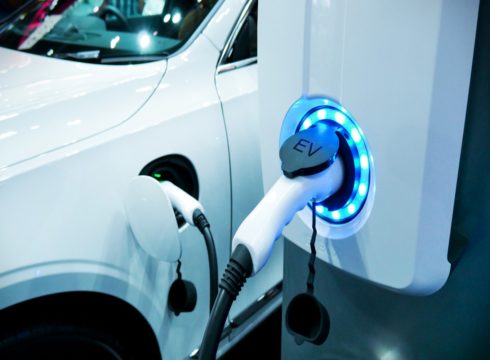SUMMARY
Other govt ministries and departments have also setup EV charging stations
These stations are being set up by the government-owned Energy Efficiency Services
Charging stations are a part of the government’s plan to invest 10K EVs
Inc42 Daily Brief
Stay Ahead With Daily News & Analysis on India’s Tech & Startup Economy
The Indian government is leading by example in its attempt to promote electric vehicle adoption in the country. Various government offices are said to have set up electric vehicle charging stations including the Prime Minister’s office.
According to a media report, 15 EV charging stations are said to be installed at the parking space of the Prime Minister’s office, which reportedly has the maximum number of EV charging stations among all government ministries and departments. Closely followed by the government think-tank NITI Aayog and the Ministry of Finance, who both have 10 charging stations each.
Further, the Parliament has seven charging stations, while the Ministry of Power and President’s residence both have four stations, Ministry of external affairs have three and Gujarat Bhawan has two stations in Delhi.
These charging stations are installed by the government-owned Energy Efficiency Services Ltd. as part of the government’s aim to invest in 10,000 EVs.
“The prime minister is extremely keen on the idea. We also have a lot of electric cars in our fleet,” a government official reportedly said.
Indian Govt Pushing For An EV Future
Earlier last week, while announcing the union budget 2019, Indian Finance Minister Nirmala Sitharaman said that the government is aiming to make India a global hub of electric vehicle manufacturing.
To achieve this, the FM proposed a new scheme which will invite global companies through a transparent competitive bidding process to set up mega manufacturing plants in sunrise and advanced technology areas including lithium storage batteries, and charging infrastructure.
The new scheme will provide manufacturing plants with investment-linked income tax exemptions. Certain parts used in EV manufacturing would also be exempt from customs duty, the finance minister added.
In addition to this, the finance minister has also proposed additional income tax deductions of INR 1.5 Lakh on the interest amount for electric vehicle loans. This should make EVs more attractive for the average consumer. Further, she also noted that the government has moved the GST council to reduce the tax in EVs to 5% from the existing 12%.
Due to issues such as lack of proper EV charging infrastructure and low domestic EV parts manufacturing capacity, companies in this space had to invest heavily in setting up their own charging infrastructure and spending huge amounts on importing key EV components.
The central government had also launched an EV focused scheme, FAME. The second phase of this scheme has come into effect from April 2019. Under FAME II, the government has proposed to invest INR 10,000 Cr ($1.4 Bn) over three years to support 10 Lakh two-wheelers, 5 Lakh three-wheelers, 55K four-wheelers, and 7K buses that operate on lithium-ion batteries or other electric power-trains.
Recently, NITI Aayog had also announced plans for full electric transition for three-wheelers by 2023 and two-wheelers with an engine capacity less than 150 CC by 2025.
Note: We at Inc42 take our ethics very seriously. More information about it can be found here.


